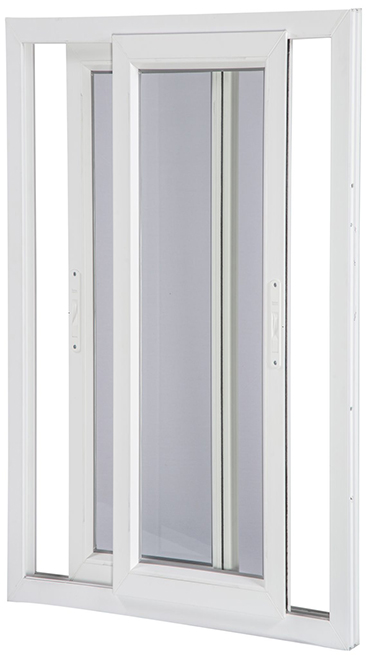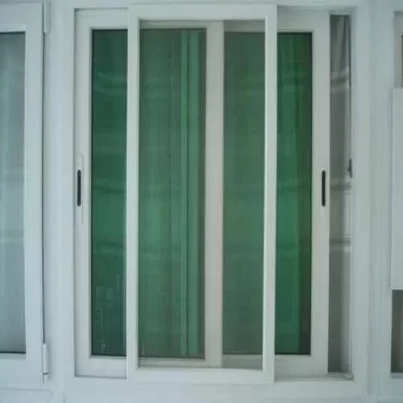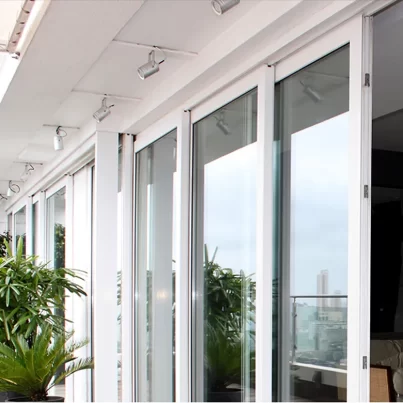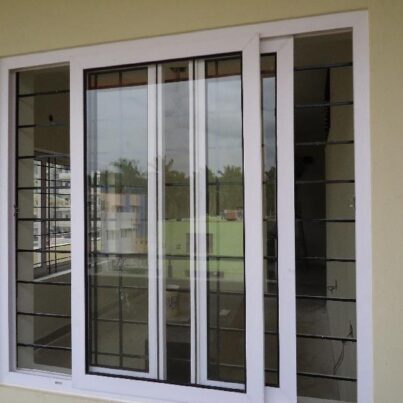UPVC sliding windows are a popular choice for modern homes and buildings due to their sleek design and practical functionality. These windows feature smooth horizontal sliding panels that glide effortlessly on tracks, making them easy to operate and ideal for spaces where outward or inward opening windows are not feasible. UPVC (Unplasticized Polyvinyl Chloride) material offers excellent durability, weather-resistance, and thermal insulation, ensuring optimal performance and longevity. UPVC sliding windows are known for their ability to maximize natural light and ventilation, making them suitable for various rooms in a house or commercial setting. They are also low-maintenance, requiring minimal upkeep compared to other window types. With their clean lines and efficient operation, UPVC sliding windows provide a stylish and functional solution for contemporary architectural designs.
Space-Saving: Perfect for areas with limited space as they slide horizontally along tracks without needing space to swing open.
Easy Operation: Smooth sliding mechanism for effortless opening and closing, ideal for hard-to-reach places.
Energy Efficiency: Excellent thermal insulation helps maintain comfortable indoor temperatures and reduces energy costs.
Maximized Natural Light: Large glass panels maximize natural light, brightening interior spaces and reducing reliance on artificial lighting.
Low Maintenance: UPVC material is durable, resistant to rot and corrosion, and requires minimal upkeep with simple cleaning.
Noise Reduction: UPVC sliding windows provide good sound insulation, reducing external noise levels inside the home or building, creating a quieter and more comfortable indoor environment.

1) Why should I choose UPVC sliding windows over other window types?
UPVC sliding windows offer several advantages over traditional window options. They are highly durable, resistant to corrosion, and require minimal maintenance. Additionally, UPVC (Unplasticized Polyvinyl Chloride) is a superior material for thermal insulation, helping to keep your home cool in summer and warm in winter. UPVC sliding windows are also known for their smooth operation and sleek appearance, making them a popular choice for modern homes.
2) Are UPVC sliding windows suitable for all types of weather conditions?
Yes, UPVC sliding windows are designed to withstand various weather conditions. The material is resistant to moisture, which prevents rotting and warping over time. UPVC is also a poor conductor of heat, which helps to maintain a consistent indoor temperature regardless of the weather outside. Additionally, these windows often come with tight seals that prevent air leakage, enhancing their performance during extreme weather conditions.
3) How do UPVC sliding windows contribute to energy efficiency?
UPVC sliding windows are excellent for energy efficiency due to their insulation properties. The material itself has low thermal conductivity, meaning it does not easily transfer heat. This results in reduced heat loss during colder months and less heat gain during warmer months, ultimately lowering your energy bills. Moreover, UPVC sliding windows can be fitted with double or triple glazing, further enhancing their insulation capabilities and overall energy efficiency.












